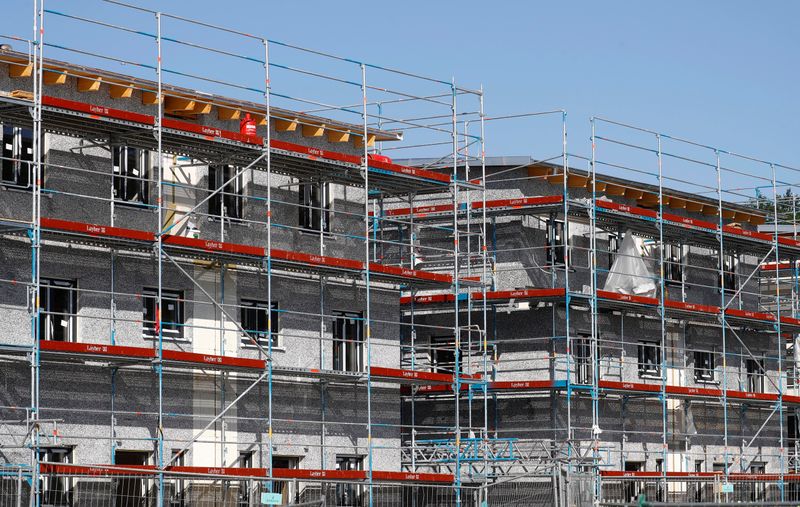BERLIN (Reuters) - Germany's construction industry expects record sales this year and next thanks to booming demand for housing and higher state spending on infrastructure, associations said on Wednesday.
The German economy, Europe's largest, is relying increasingly on robust domestic spending helped by record-high employment and strong demand in the construction sector as trade tensions and a global economic slowdown hit exports.
The construction boom is driven by higher state spending on roads and bridges, increased company investment in buildings and a real estate bonanza. It has also been encouraged by ultra-low interest rates, a growing urban population and high immigration levels over the past five years.
The ZDB and HDB construction associations said that nominal sales rose by 8.5% to 137.2 billion euros this year, surpassing levels last seen during a boom following unification and the economic upswing in East Germany in the mid-1990s.
For 2020, the associations forecast construction sales to grow by 5.5% to 145 billion euros, the highest level since German unification in 1990.
Sales in residential construction are expected to grow by 7 percent to 54.2 billion euros next year. Company investments are seen rising by 5.5 percent to 51.3 billion euros while state spending on roads and bridges is forecast to increase by 4 percent to 39.5 billion euros.
With construction prices expected to rise by 4.5 percent next year, however, overall sales in real terms are likely to grow by only 1 percent, the associations added.
Employment in construction rose by about 20,000 to 857,000 people this year, with a growing number of companies struggling to find skilled workers, they added. For 2020, companies expect to increase staff by 13,000 to 870,000.

The federal government has made available billions of euros for social housing, but the outflow of earmarked funds has been slow due to planning bottlenecks at local authorities and capacity constraints in the construction sector.